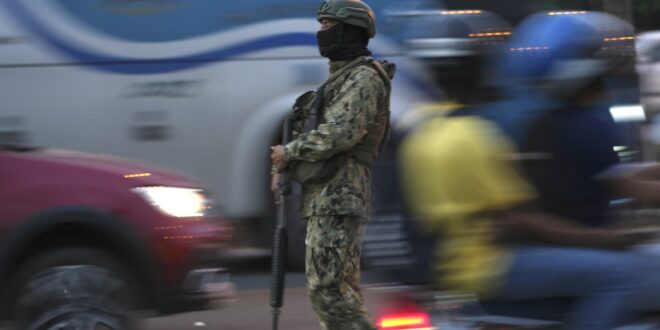Ecuador Faces Wave of Political Violence
GUAYAQUIL, Ecuador (AP) — Ecuador is witnessing an alarming surge in violence, with three political leaders killed in the last four weeks, including a presidential candidate. Pedro Briones, a local leader of Revolución Ciudadana, the party of former President Rafael Correa, was fatally shot on Monday in the northern province of Esmeraldas. The details of the incident have not yet been released.
Luisa González, the frontrunner in Sunday’s special presidential election and a member of Revolución Ciudadana, confirmed Briones’ death and expressed her condolences via Twitter. González stated, “Ecuador is experiencing its bloodiest era. A heartfelt hug to the family of colleague Pedro Briones, fallen by the hands of violence.”
This tragic event follows the assassination of presidential candidate Fernando Villavicencio, who was killed at the end of a political rally in the capital city of Quito. Villavicencio had a strong stance against organized crime and corruption, yet even with a security detail that included police and bodyguards, he could not avoid being targeted.
The violence does not stop there. In July, the mayor of Manta, Agustín Intriago, was also fatally shot. These killings are symptomatic of Ecuador’s transformation into a major drug trafficking hub, with local gangs vying for control of the streets, prisons, and drug routes. Crime and violence have become central concerns in the lead-up to Sunday’s election.
González’s Security Measures and Plans
In the wake of Villavicencio’s assassination, Luisa González revamped her security detail, although she remains steadfast in her decision to not wear a bulletproof vest due to her religious beliefs. She expressed her faith in God, stating, “I have faith in God; he is the one who takes care of us.”
If elected president, González aims to take a strong stance against crime. She plans to address issues such as cleaning up the police forces, strengthening border control, and investing in law enforcement equipment. She also criticized President Guillermo Lasso’s government for failing to maintain control of the country’s detention facilities, which have become hotbeds of criminal activity.
Transfer of Gang Leader and Protest
In response to the threats made by gang leader Adolfo Macías, alias “Fito,” against Villavicencio and his campaign team, authorities moved Macías into a maximum-security prison. The transfer took place after a raid on the jail where Macías was being held resulted in the seizure of weapons, ammunition, and explosives. However, the transfer sparked protests from other inmates demanding Macías’ return to the previous jail, and signs calling for peace and his release were displayed outside the complex.
Ecuador’s Rising Violent Death Toll
Ecuador has seen a significant increase in violent deaths, with 3,568 recorded in the first six months of this year compared to 2,042 during the same period in 2022. The country’s violent death toll in 2022 reached 4,600, which was double that of 2021 and the highest in its history.
The investigation into the recent assassinations is ongoing, with authorities detaining six Colombian men suspected of involvement in Fernando Villavicencio’s killing. The FBI is also assisting in the investigation.
Associated Press writer Gonzalo Solano contributed to this report from Quito, Ecuador.
 Mind Uncharted Explore. Discover. Learn.
Mind Uncharted Explore. Discover. Learn.
